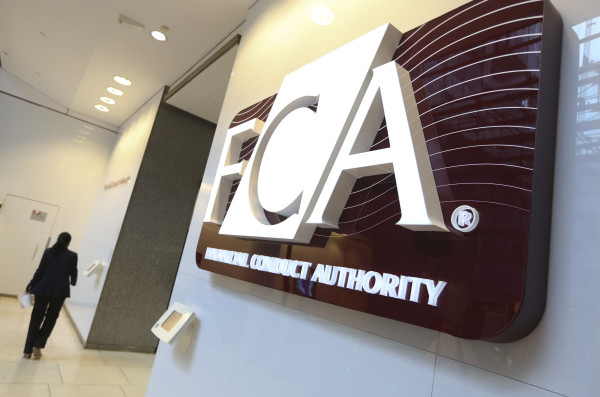

In its report into the British Steel Pension Scheme (BSPS), published today (15 February), the Work and Pensions Committee is recommending that the watchdog puts a stop to this practice, which they consider to be “a key driver of poor advice”.
The committee said: “Genuine independence is not compatible with a charging model that only rewards advisers for recommending a particular course of action.”
Contingent charging means advisers only charge a client a fee if they go ahead with the advice recommendations. The method has raised concerns about conflicts of interest, especially for pension transfers.
The FCA’s position on contingent charging has been set out since 2013 – it said that contingent charging is higher-risk than a time-cost charging model due to the need to sell products to generate revenue.
The FCA has previously said that firms operating under this model should ensure they have adequate controls in place to manage this risk and potential conflicts of interest.
According to an FCA spokesperson, the watchdog will take this and the committee’s other recommendations “as part on the ongoing work on reviewing rules around pension transfer advice”.
The watchdog is expected to publish its report on this issue until the end of Q1.
Kay Ingram, director of public policy at national advice firm LBEC, supports a ban on this practice.
She told FTAdviser: “It is not a practice which LEBC employ, as we believe it is important to maintain a neutral approach when advising on pension transfers. We charge a fixed fee for advice, regardless of the outcome of that advice.”
Andy Cowen, head of financial planning at Tilney, shares a similar view.
He said: “I agree that contingent charging is not compatible with best client outcomes and creates an inappropriate incentive for some advisers to recommend transfers.
“What clients need is objective advice and this can only be driven through setting apart, and separately charging for, the pensions technical advice as distinct from any subsequent investment recommendation. This is already Tilney’s approach.”
Smaller independent financial advisers are also calling for the watchdog to comply with the MPs request.
Martin Bamford, chartered financial planner for Surrey-based Informed Choice, argued that contingent charging is “incredibly risky from a consumer perspective, dramatically increasing the chances the adviser will recommend a product solution, regardless of suitability”.
He said: “If the only way for an adviser to get paid is to recommend an investment or switch, this financial motivation must reduce impartiality.
“I’m amazed that the FCA hasn’t cracked down hard on contingent charging since the Retail Distribution Review (RDR) was introduced at the end of 2012.
“The regulatory has previously made it clear to advisers they consider contingent charging to be ‘higher risk’, but they could have gone further, especially in relation to DB pension transfers.”
According to Warren Shute, certified financial planner and director at Swindon-based Lexington Wealth Management, advisers who are only remunerated when a product transaction takes place “should not be allowed to be called anything other than sales consultant”.
He said: “You wouldn't ask a butcher for nutritional advice!”
Graham Bentley, managing director of consultancy gbi2, argued the RDR “identified advice as the chargeable activity, not an associated product recommendation”, so contingent charging is obsolete.
He said: “A recommendation to do nothing is no less chargeable than a recommendation to do something. Both require investigation and analysis to reach a conclusion. It’s the investigation and analysis that demands the fee.”
Some specialists are, however, advising caution about the regulator introducing a “blanket position”.
Rory Percival, former technical specialist at the FCA, who now runs his own consultancy, said he is adverse to an outright ban.
“If a client comes along and they got £31,000 they have to get advice. And if they have a low income and don't have any other resources at all, then they don't have the money to pay the non-contingent charge.
“I think I'm probably adverse to an outright ban, but certainly I think it should be the minority scenario. It should be the exception rather than the norm as it is at the moment.”
Mr Percival understands, however, why the MPs would suggest such a solution.
He said: “It’s is an easy, simple approach to take. It's a simple answer. The problem is good answers don't tend to be simple.”
There are also some financial advisers that don’t agree with the introduction of such a ban.
Alan Chan, director and chartered financial planner at London-based IFS Wealth & Pensions, argued that he hasn’t “seen enough evidence to suggest that contingent charging leads to poor advice”.
“If the advice is unsuitable, then it will be unsuitable regardless of how the advice is paid for. It’s all about the advice process, and management oversight and controls within a firm.
“This is what the FCA needs to work hard to ensure firms that are active in this market must have higher controls or compliance procedures in place.”
Mike Lacey, partner at Berkshire-based financial adviser firm Bowman Pension Consulting, argued that “an outright ban on contingent fees would lead to fewer people actually taking advice”.
He said: “The problem is that to advise on pension transfers is being seen as increasingly risky and there is no way an adviser can offer advice at no cost.
“Even if no transaction takes place after the advice has been given, the advice has been given and the adviser is liable. But clients often don’t like to part with a fee – particularly when the advice is ‘stay put’.”
maria.espadinha@ft.com



